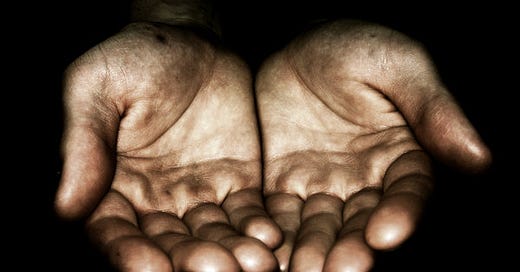This is post #8.
We acknowledge the Almighty OLODUMARE. The one who is ÒYO ÌWÀ (the Creator of Existence) and salute every man, woman and child.
We salute the home-born and the stranger - Ìbà ọ!
In our last post, we examined the second of the eight attributes of an Omoluabi - Iteriba (respect).
Over the next while, we will spotlight these other attributes. They are as follows:
Oro siso (sound speech),
Iteriba (respect),
Inu rere (good mind toward others),
Otito (truth),
Iwa pele (gentle conduct),
Akinkanju (bravery),
Ise sise (diligence) and
Opolopipe (intelligence).
When your heart is clean And your mind is good You will walk through fire But you will not be burnt You will run the race You will not be tired You will see a star On the darkest nights Your yam will be white and crisp Your bread soft and warm Your song will be the kind The world will like to sing Niyi Osundare
Inu rere (good mind toward others) is about having a clean mind, and a clear conscience towards all and sundry.
It is indeed a very important element of what makes a person an Omoluabi.
The Yoruba people are a noble people who are known for extending goodwill to others, sometimes to a fault. This is seen particularly in the way we treat strangers; we are the people who believe in esteeming all persons highly even if they are not homebred.
It was this attribute that the slave masters exploited to enslave and colonise us. They took advantage of our good mind towards them.
Opolopo alangba lo da iku dele, a o mo iyi ti inu n ro (all lizards go belly crawling, so we don’t know the one that has stomach upset).
In a manner of speaking, the Yoruba liken a human being to a lizard; it is the belief of the Yoruba ancestors that the mind of a human being is too deep to be understood in the same way it is almost impossible to determine which of the belly-crawling lizards have stomach ache.
The ability to rise above one’s own needs to be able to think of others is a quality that is most prized and the reason for this is because, when a person is bereft of collegiality and sense of community, such a person is capable of manifesting the most gruesome tendencies imaginable capable only by beasts in the forest.
The idea of simply living to get all you can, putting all you can in a can and then sitting on the can is cave mentality, and the Omoluabi is above this banality.
Having a clean, and clear mind with good conscience towards others is an attribute that separates an Omoluabi from an Omo-ale (a bastard).
We ought to show kindness to others as much as it is within us.
We should not be the person who architects evil against others. Even in enmity, there should be honour.
It is the way of Omoluabi not to play God over fellow humans. Even when they wrong you.
Bi ati bi eru ni a bi omo (the slave and the child are both humans, and so are deserving of dignity)
The Omoluabi is deliberate about being a force for good. If s(H)e has enough, he/she distributes to meet the needs of those who are in need. He considers the need of others especially those who are destitute.
Ko si bi obo ti se, ti inaki o se (the Baboon and the Monkey are cousins, and so are we all)
We should not wish or think evil toward others and should seek to be a light in a world that is full of darkness.
As we go about our own business, we should not become so engrossed in own our pursuits that we fail to lend a helping hand to others in need.
The sacred scriptures of Yorubas (IFA), teaches us to run from evil thoughts, actions and utterances.
We are Omoluabi.
We have good intentions towards others.
Let us now sing the Omoluabi song of Inu Rere:
Owo mi ma re, funfun lele (see my hands are clean)
Inu mi ma re, funfun lele (see, my mind is clean)
Owo mi ma re, funfun lele (see my hands are clean)
Inu mi ma re, funfun lele (see, my mind is clean)
May it be well with us today and next - Àṣẹ Wàá!





